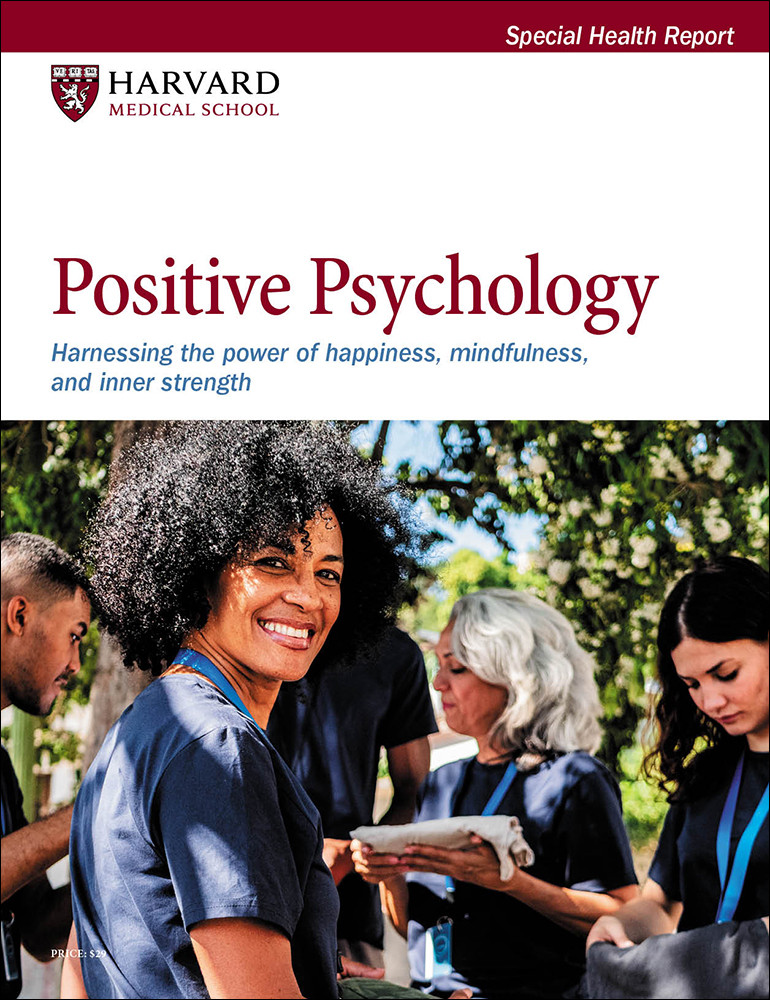Working during retirement years
Although men may welcome retirement and the chance to take it easy, research shows that continuing to work in some capacity helps keep the body and brain "young."
- Reviewed by Howard E. LeWine, MD, Chief Medical Editor, Harvard Health Publishing; Editorial Advisory Board Member, Harvard Health Publishing

While many people in retirement turn to hobbies and travel to stay active and mentally engaged, these alone might not be enough. And if your idea of retirement is to simply kick back and relax, you may be setting yourself up for a higher risk of health problems and a shorter lifespan.
“Many men still need the benefits from meaningful and productive work after they retire, whether it’s continuing their current job or trying something new,” says Cal Halvorsen, an associate professor of gerontological social work at Washington University in St. Louis, who leads the ongoing Older Workers’ Health and Well-being Study at Harvard’s T.H. Chan School of Public Health. “Working can boost self-esteem, increase happiness, and help protect them from many age-related health issues.”
Putting in the workDoes it matter how much you work? Not really, according to Cal Halvorsen, an associate professor of gerontological social work at Washington University in St. Louis. “There isn’t a clear link between the amount of time you spend working each week and the resulting health benefits,” he says. “But everyone’s situation is different. Some may enjoy working close to full time or may need to work a certain number of hours for extra income, while others are content with part-time or even contract or seasonal work.” However, the most important factor is job satisfaction. “Just like in your regular career, high-stress and demanding jobs can have the opposite effect on your health,” he says. “If you are unhappy at the job, the negatives can outweigh any benefits.” |
How working helps your health
According to a 15-year National Health Interview Survey of 83,000 older adults, published in the CDC journal Preventing Chronic Disease, people who continued to work past age 65 were more likely to maintain good health and less likely to have serious health problems than those who retired and did not work. Ongoing health issues that may have prevented working for those no longer employed was not assessed and surely contributed to the survey results.
Here are some other reasons why working later in life is associated with health advantages.
Social connections. Ongoing research has linked a strong social life with a lower risk of heart disease and greater immune function. The Harvard Study of Adult Development, which has been tracking generations of families since 1938, has found that maintaining relationships and social contacts is one of the top requirements for happiness in retirement.
“Working is one of the best ways to stay connected with people,” says Halvorsen. Work can also provide more diverse interactions, which can further increase happiness. A 2022 study published in the Proceedings of the National Academy of Sciences found that people get an additional happiness boost from interacting with people beyond their immediate circle of friends and family. Such interactions include even brief encounters with co-workers and strangers.
Cognitive health. Regular work helps maintain many brain skills, such as comprehension (understanding information), analysis (breaking down complex scenarios into easily understood parts), and evaluation (judging whether a decision makes the most sense).
Sense of purpose. Many men find a sense of purpose in their work. “Work and careers are tied to status and self-worth, particularly for older men, but in retirement, many men lose that connection and may begin to question their importance in the world,” says Halvorsen. “Work can help them renew their sense of meaning and purpose.” Research has shown that having a strong sense of purpose is associated with longevity, improved memory and cognitive function, and a lower risk of dementia.
Create work-like experiencesAnother way to tap in to the mental benefits of working without punching the time clock is to create settings and experiences similar to your former work life. Group meetings, team projects, water-cooler banter — all these types of workplace interactions helped men establish social connections that kept their brains engaged. One way men can do this is by joining an established group, such as a walking group, a golf or bowling league, a card or chess club, a men’s club at an adult community center, or a class at an adult education center. This re-creates a work-like environment emphasizing skills like team building and support, leadership, and performance. Often these social gatherings occur once or twice a week, so you can ease into the setting without feeling overwhelmed. In many cases, they also allow you to come and go, lowering the pressure of trying to fit in or making a lasting commitment. Another option is re-creating the “power lunch.” Set a regular weekly meeting with a group of friends for lunch or even coffee at the same place and time, ideally in a setting designed for conversation and discussion. |
Second careers
If you still enjoy your current career, there is no reason not to continue in that field. Or you could focus on a different path. Dr. Mitchell Rabkin, former president of Harvard-affiliated Beth Israel Hospital, had a long medical practice and hospital administration career and wanted to stay in medicine in retirement, so he shifted to teaching and writing medical articles.
Embarking on a second career is also an opportunity to do more gratifying work. “If your original career did not unfold like you planned, or if you have unfulfilled goals, retirement is a chance to correct that,” says Susan Peters, associate director for the Center for Work, Health, and Well-being at Harvard’s T.H. Chan School of Public Health. “You’ve had years to explore what you’re good at and what excites you, and now you have the time to pursue those interests.”
For some men, this may mean entering a completely different field, learning a new skill, opening a business, or choosing work that satisfies specific needs like more personal interactions or working in certain environments.
Other opportunities
If you don’t want to re-enter the workforce or can’t for health reasons, other options are available that offer the same health benefits. For instance, many experts point to volunteering as an ideal alternative.
“Volunteering offers multiple benefits that working provides, such as social interactions, physical movement, mental stimulus, and perhaps most importantly, establishing a person’s sense of purpose,” says Halvorsen. As with regular work, you don’t have to devote much time to receive its rewards. According to results of an observational study published in the January 2025 issue of Social Science & Medicine, researchers found that 50 to 199 hours per year, or about one to four hours per week, was linked to health benefits like slower biological aging — particularly among retirees.
It’s important to take the time to research the proper volunteering fit, according to Halvorsen. “Make sure it aligns with your goals, time commitment, personal interests, and comfort level,” he says. For instance, do you enjoy working in service to people? Do you like to lead a team to accomplish a goal? Is there a cause or issue you care about? After you decide, start small — a few hours per week — and gradually build up as your comfort level increases.
Another option is to become a career or youth mentor. You can begin by contacting your local high school to inquire about its mentoring programs. Or try your area Junior Achievement programs and regional chapters of national programs like Big Brothers Big Sisters of America and the United Way. Also, many senior centers, churches, and other faith-based organizations have mentoring opportunities. (You can search for other mentoring programs on the National Mentoring Partnership website.)
Image: © Jose Luis Pelaez Inc/Getty Images
About the Author

Matthew Solan, Former Executive Editor, Harvard Men's Health Watch
About the Reviewer

Howard E. LeWine, MD, Chief Medical Editor, Harvard Health Publishing; Editorial Advisory Board Member, Harvard Health Publishing
Disclaimer:
As a service to our readers, Harvard Health Publishing provides access to our library of archived content. Please note the date of last review or update on all articles.
No content on this site, regardless of date, should ever be used as a substitute for direct medical advice from your doctor or other qualified clinician.
















